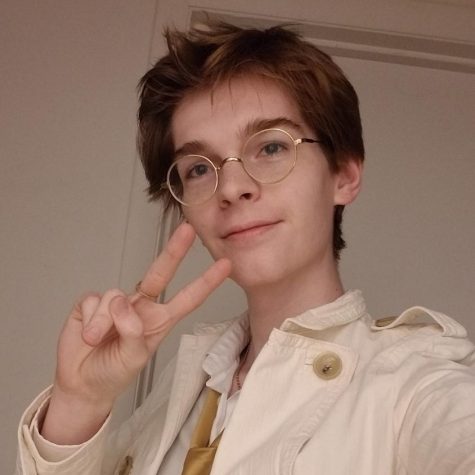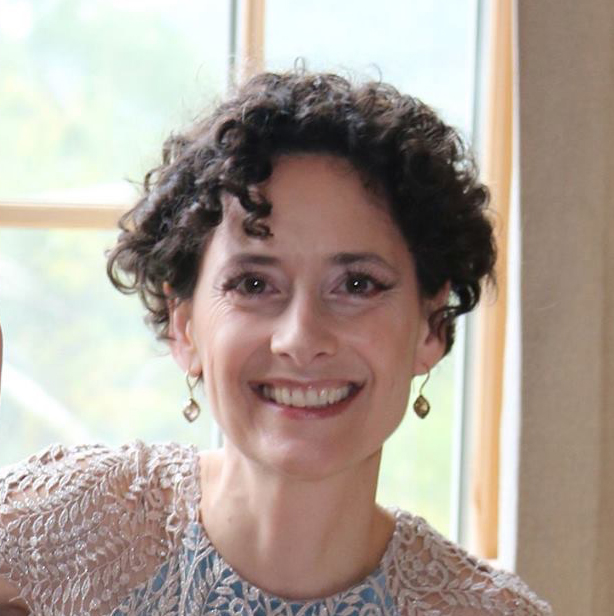Chancellor fields student questions surrounding new university
The VSCS Board of Trustees held an open forum on April 6 to hear student feedback on the system’s upcoming transformation, which will see four of its campuses united into a single university.
A handful of students attended the event and asked questions of Chancellor Sophie Zdatny and other members of the board. After introductions, Zdatny began the meeting with an update from the Select Committee on the Future of Public Higher Education.
According to Zdatny, the final report outlining the committee’s recommendations was ready to be sent to the state Legislature a few days following the meeting. She said the final version was primarily a revision of language alongside updated statistics and graphs.
“The major recommendations of the Select Committee have not changed,” she said, adding, “the board will continue to have regular meetings, as we go through the transformation process… because there’s still going to be a lot of decisions to be made.”
Patrick Lucey, a graduating senior at Castleton spoke up at the meeting. He said his “main concern… is understanding how this is going to save [the system] money in the long run.”
Ryan Cooney, student trustee on the VSCS Board, noted that “it was $9 million that NVU has already saved through their consolidation,” and said he expected the savings would continue to climb.
Zdatny added to the conversation, citing discussions with state Legislature surrounding cost-reductions, something the consolidation plans are meant to address. “We have to save $5 million each year in addressing structural deficits… over a five-year period,” she said.
Over the past several months, the Select Committee has been discussing ways to meet this goal. “They came up with a recommendation of combining the three institutions into one common accreditation and to address our structural deficit,” Zdatny said.
She also explained that the system has requested one-time funding to aid this half-decade goal, but also requests that past those five years, the systems base appropriation be increased from $30 million to $47.5 million.
“The goal here is really the survival of the individual campuses,” Zdatny said. She said that the path forward will certainly be complicated and challenging but stressed that the governor and Legislature have been responsive during this process.
“In my view, this was the path forward if we wanted to receive the funding that we needed,” Zdatny said. She explained the agreement as a sort of trade, where the VSCS must make changes committed to cost reduction, and in return, the state government would provide funding necessary for the transition.
“We’ve asked the Legislature for $20 million in transformation costs,” Zdatny said. The funds will be distributed over the next few years, and the system has requested $8 million for the first year as it begins the process. For comparison, NVU’s consolidation was supplemented with $2 million in transformation funds.
Lucey also expressed concerns over branding and marketing, such as name changes, sports mascots, school colors and campus culture. “I think that’s one of the main concerns on campus,” he said, “because we’ve had 343 green forever, and we’re the Spartans, and I know identity is super important.”
Zdatny said the name change will be decided by the board of trustees, and communicating with the NCAA is on the board’s to do list. However, she pointed out that “when Johnson and Lyndon combined, they maintained their separate… mascots and colors for their sports teams.”
She admitted that she was uncertain what the future would hold in this department. She noted potential complications such as the number of campuses, possible NCAA rules changes and VTC’s ranking in a different conference than the rest of the institution.
Zdatny also addressed what changes current students are most likely to be impacted by. She said that early discussions have been taking place with marketing, admissions, financial aid and the registrar’s office. However, she said changes with these groups are likely still a year or two out.
“We’re just starting with a number of conversations,” she said. “A lot of them are more in the background [and] wouldn’t necessarily be immediately visible to students.” She said that if students notice anything, she hopes it’s an improved sense of service in these areas.
Devin Tingle, student representative on the Select Committee, added that “student activities between all the schools have already started working together on planning events,” and this would likely have a more direct impact on the student body.
More specifically, Zdatny spoke about the potential for remote instruction across campuses following consolidation. “We have learned from COVID that… doing things virtually can be successful,” she said.
Zdatny said she sees cross-campus courses as a likely reality in the coming years as a result of virtual learning during the pandemic. “There are some classes that are being taught across campuses right now,” she said. “For example, a faculty member of Castleton is having students from the Johnson campus participate remotely.”
However, she acknowledged that this wouldn’t be without difficulty, and changes would need to be implemented to make such courses long-term feasible. For example, she said she recently learned that the times classes start and end vary between Castleton and NVU.
“You could have a class your first period at Johnson and then your second period at Castleton, but if the class blocks aren’t aligned, that’s going to be a real challenge,” she said. As a result, she predicted that aligning class times to be more consistent across campuses is something likely to occur sooner rather than later.
Lucey also asked about what changes to tuition students might expect. Cooney commented, saying that changes to tuition wouldn’t be coming for quite some time, but said affordability is important.
“Affordability is one of the things that the board, the chancellor’s office and the Legislature all pointed out is really key to the continued success of the system in the state of Vermont,” he said. Cooney said the hope is that consolidation will lead to reduced tuition costs, and Zdatny agreed.
“Tuition is high for us,” she said, “but we’ve been historically very tuition dependent, so we haven’t had much flexibility around that.” Zdatny said conversations surrounding pricing were a long way off, and they’ll require difficult and intensive work.
A lot of factors go into determining pricing, and Zdatny listed price variance between programs, in-state and out-of-state tuition differences, room and board costs and others as examples.
“There is a lot of focus on that both at the Legislature and within the system,” Zdatny said, “and hopefully we can really see system enrollment gains if we can make college more affordable for students.”
Lucey also raised concerns about alumni donors not investing in a unified system. “I know people graduating now, they still feel… like we’re not a part of this anymore,” he said. He worried that consolidation which disenfranchise alumni who couldn’t identify with the new institution.
Cooney addressed this concern, saying that “NVU [had] the same question three years ago when they consolidated, and actually, they saw donations increase following their merger.”
Zdatny expanded on this. “Hopefully, people will realize that the place they loved and cared about is still there, it’s just again, this is really about preserving it.” She stressed that the decision is based around the survival of the system and hopes that donors will see the need to continue giving support.
During the meeting, Kevin McGreal, a student at CCV, expressed interest in unifying the campuses’ student bodies through virtual spaces. McGreal said that the pandemic has forced CCV, which is spread across a dozen campuses, to find new ways to socialize.
He explained that prior to COVID-19 precautions, “They’d have their little bulletin boards, and they would organize events based on campuses,” but as a result of social distancing, “we’ve been kind of piloting these different social groups through Canvas.”
McGreal said he is working with other students at CCV to make this a more robust experience, and the pages are used for socializing and event organizing. He said he hopes unification can provide opportunity to bring this to the rest of the system’s campuses.
Zdatny expressed her support for the effort, and said, “Once we have a common accreditation for the other three institutions, they’re going to be more like CCV in terms of having multiple campuses… so I think those kinds of ideas are really, really great.”
Another forum with the chancellor will be held on Tuesday, May 4, and students are encouraged to come with questions. If students want to submit comments but cannot attend the meeting, a form is available at the bottom of the VSCS Transformation page. The page can be found at vsc.edu/transformation.
“Student input is really helpful in terms of thinking through what we’re offering and what we provide moving forward,” Zdatny said.

Senior, Creative Writing
From Fletcher, VT
Spring 2020-Present
"Call me mommy and I'll bring you blankets and hold you while you cry."




